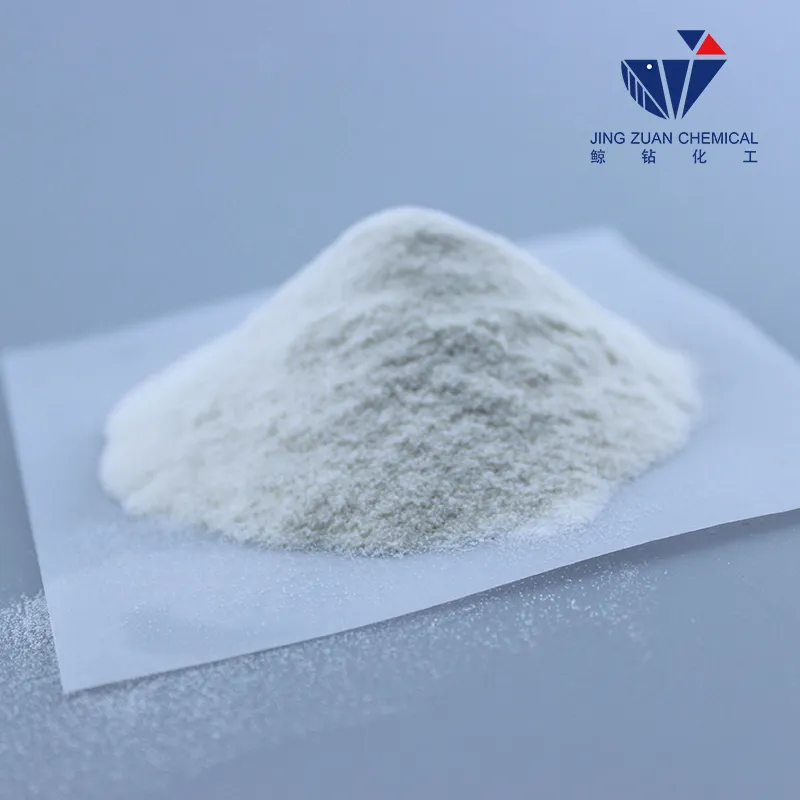
Aug . 20, 2024 05:34 Back to list
Benefits and Applications of Hydroxyethyl Cellulose in Natural Products and Formulations
Hydroxyethylcellulose The Natural Polymer Revolutionizing Industries
Hydroxyethylcellulose (HEC) is a non-ionic, water-soluble polymer derived from cellulose, a natural carbohydrate found abundantly in plant cell walls. This versatile compound has gained prominence in various industries due to its unique properties, making it an ideal ingredient for a wide range of applications, particularly in the fields of cosmetics, pharmaceuticals, and food products. Its natural origins and multifunctionality position HEC as a preferred choice in many formulations, showcasing its importance in today’s market.
Hydroxyethylcellulose The Natural Polymer Revolutionizing Industries
In addition to its thickening capabilities, hydroxyethylcellulose exhibits excellent water retention properties. This characteristic is particularly valuable in the personal care industry, where hydration is crucial for maintaining skin health. By forming a moisture-retaining film on the skin, HEC helps to ensure that cosmetic products deliver long-lasting hydration, contributing to an overall improvement in skin texture. This aspect is increasingly sought after in anti-aging products, where moisture retention plays a vital role in reducing the appearance of fine lines and promoting a youthful complexion.
hydroxyethylcellulose natural

In pharmaceuticals, hydroxyethylcellulose acts as a binder and a controlled-release agent in tablets and capsules, improving the efficiency of drug delivery. Its biocompatibility and non-toxicity make it an attractive option for various medical applications, including topical formulations and ointments. As the demand for natural ingredients in healthcare continues to rise, HEC stands out as a reliable choice for formulators seeking to create safer and more effective products.
The food industry has also embraced hydroxyethylcellulose due to its gelling, thickening, and emulsifying properties. HEC can enhance the texture and stability of various food products, such as dressings, sauces, and dairy items. It helps improve mouthfeel while reducing the overall fat content, making HEC a valuable ingredient for health-conscious consumers. The natural origin of HEC aligns perfectly with the growing trend toward clean labeling, where consumers seek transparency and healthier options in their food products.
Beyond its applications in cosmetics, pharmaceuticals, and food, HEC is making strides in other sectors, including paints, coatings, and construction materials. Its ability to enhance the flow and application properties of paints and adhesives is revolutionizing the way these products are formulated. In construction, hydroxyethylcellulose is utilized to improve the workability and adhesion of cement and gypsum-based materials, contributing to more durable and efficient building solutions.
In conclusion, hydroxyethylcellulose is a prime example of how natural materials can provide multifunctional benefits across various industries. Its water-soluble, thickening, and emulsifying properties, combined with its biocompatibility and effectiveness, make it an invaluable ingredient in cosmetic, pharmaceutical, and food applications. As the demand for natural and sustainable products continues to rise, hydroxyethylcellulose is poised to play a pivotal role in shaping the future of formulations across diverse markets, underscoring the potential of natural polymers in various sectors.
-
Versatile Hpmc Uses in Different Industries
NewsJun.19,2025
-
Redispersible Powder's Role in Enhancing Durability of Construction Products
NewsJun.19,2025
-
Hydroxyethyl Cellulose Applications Driving Green Industrial Processes
NewsJun.19,2025
-
Exploring Different Redispersible Polymer Powder
NewsJun.19,2025
-
Choosing the Right Mortar Bonding Agent
NewsJun.19,2025
-
Applications and Significance of China Hpmc in Modern Industries
NewsJun.19,2025







